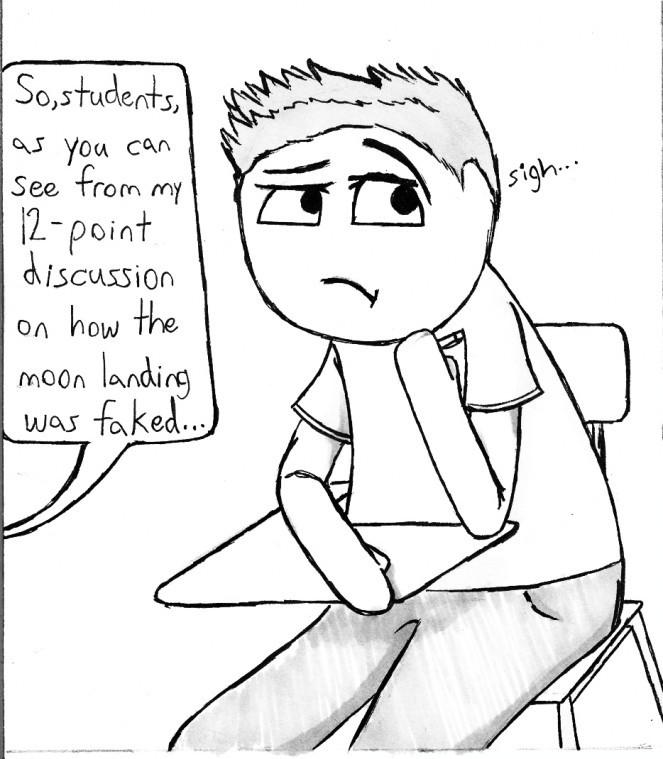Professors should not push their agendas in class
April 18, 2011
Teachers are, and should be, entitled to their opinions, but they should keep them out of the classroom. Their responsibility to educate is more important than their political viewpoints. When teachers bring their biases into the classroom, it can bother students, alienate those that disagree with them and hurt the quality of education.
Last year, I had a teacher for my ENGL 110 class that decided every story we were going to read for the semester would be about feminism.
Now I definitely believe women should have all of the same rights as men, but that’s not really what I wanted to read about in my English class. I signed up for the class to read a wide range of topics and genres, not to discuss the feminist themes in a bunch of different stories.
It was annoying to have the same viewpoint expressed every day in class and my enthusiasm for the class suffered because of it.
Now I’ve never really been opposed to any of the political opinions my teachers have expressed in my classes, but other students, like Sam Hughes, sophomore athletic training major, have been.
Hughes said she was frustrated in her POLS 100 class because the teacher often expressed a conservative viewpoint, and as a result, she didn’t feel like she could always express her own viewpoints because of how the teacher might respond.
This is a huge problem. Teachers that express their opinions can alienate the students in their classes that disagree with them. If a student doesn’t feel like they can express their viewpoint, then they might lose interest in the class or even feel like their grade would be affected because they think differently.
Another serious problem is that if teachers constantly steer the class toward their opinions and don’t allow students to express differing opinions, the class misses out on other ideas that may be as important.
Junior finance major Dallas Harty said his foreign policy course would have been better if his teacher didn’t express a conservative viewpoint in the class.
“He would always put more emphasis and definitely favor military action as a means of foreign policy,” Harty said. “He had to teach the other theories but he definitely leaned more towards what he thought.”
Harty added that in the class discussions, the teacher constantly directed the conversation toward what he believed.
This is not to say that this is just a problem with conservative professors. A biased education, whether conservative or liberal, is simply not as good or thorough as an unbiased education. Students in Harty’s foreign policy course missed out on the opportunity to discuss all viewpoints other than what their teacher believed and thus didn’t learn as much as they could have.
Classes are better when students can discuss topics fully and freely. Students are here to learn, and bias in classes can greatly restrict that.
So, while everyone has their own biases, instructors need to do their best to keep their agendas out of their classrooms and prevent them from affecting the content and their students’ education.







